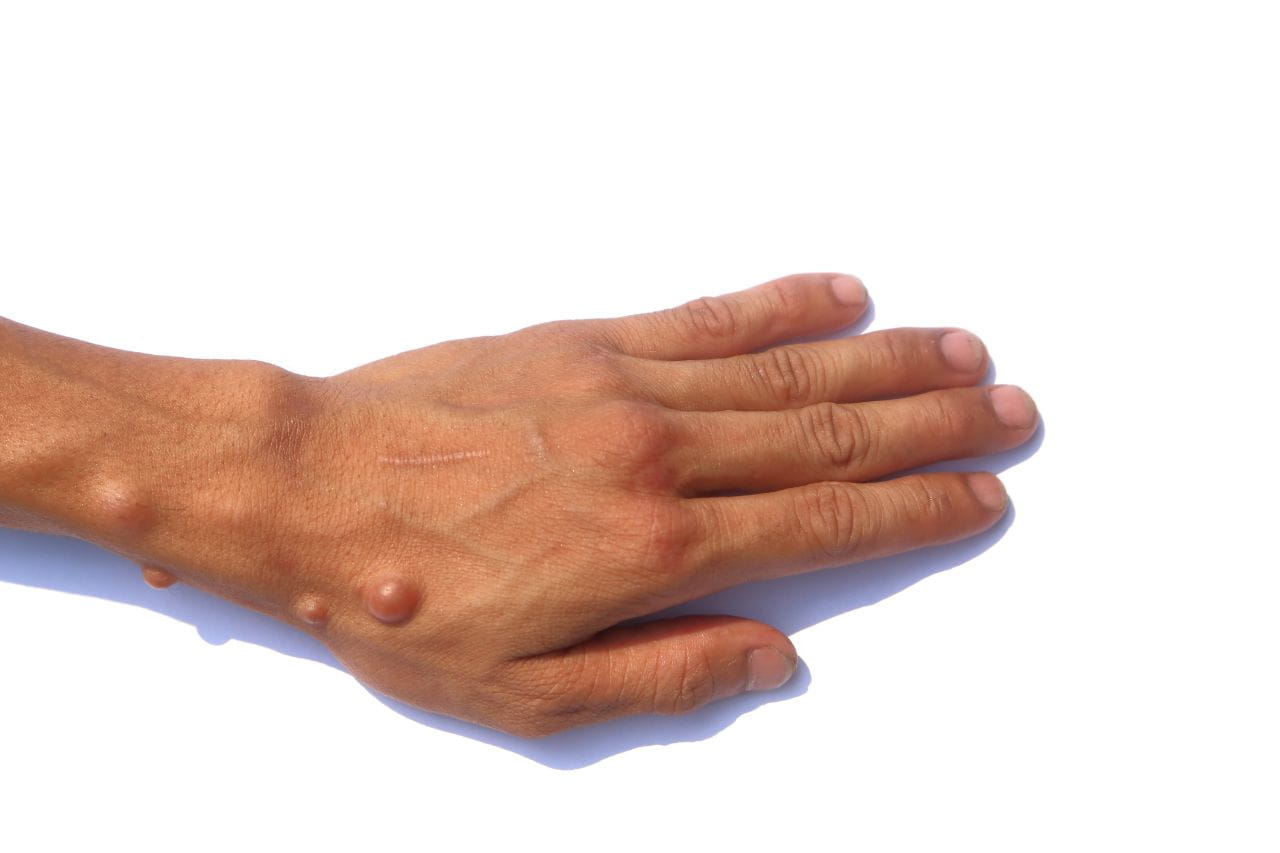Can Neuropathy Cause Itching?

Neuropathy is a condition in which nerve damage causes symptoms like numbness, pain, weakness, or tingling in affected body areas. It can also cause itching.
This article provides details on neuropathic itch, its causes, and treatments.
What Causes Neuropathy in General?
Neuropathy has several potential causes, including:
- Injuries
- Diseases like diabetes
- Infections
- Specific medications
- Neurological lesions
- Long-term alcohol misuse
Sometimes, doctors can’t identify any cause of the nerve damage. There are various types of neuropathy, such as:
- Peripheral neuropathy that typically affects the feet, legs, hands, and arms
- Diabetic neuropathy caused by diabetes and primarily affecting the hands and feet
- Autonomic neuropathy that involves damage to nerves controlling functions like blood pressure control, digestion, and bladder control
- Focal neuropathy (also called mononeuropathy) that affects a specific nerve and causes conditions like Bell’s palsy and carpal tunnel syndrome
Most neuropathies are polyneuropathies, meaning they affect multiple nerves.
What Causes Neuropathic Itch Specifically?
Several conditions can cause neuropathic itch (also called neurological itch). They include:
- Shingles. Caused by the same rash that causes chicken pox, shingles can damage nerves, leading to itching and other symptoms lasting months or years after the outbreak has resolved.
- Diabetes. Chronic high blood sugar levels from diabetes can lead to peripheral neuropathy, which is responsible for itching and other symptoms in the extremities, especially the hands and feet.
- Brain and spinal cord lesions. Conditions that damage the brain or spinal cord, such as multiple sclerosis, stroke, and neurofibroma tumors, can cause chronic itching in various body areas.
- Liver diseases. Hepatitis C, primary biliary cirrhosis (PBC), and other conditions affecting the liver can cause itchy skin.
- Brachioradial pruritus. This condition, which may be related to sun exposure, often causes itching in the arms.
- Trigeminal trophic syndrome. Misfiring of the trigeminal nerve, which connects the face and brain, can cause chronic itching.
- Notalgia paresthetica. Itching along the spine and inner part of the shoulder blades is a symptom of this common condition.
Neuropathic itching often occurs with pain or other sensations that feel like electric shocks, tingling, or stinging.
How Do Doctors Diagnose Neuropathic Itch?
Diagnosing neuropathic itch can be difficult. It typically involves ruling out other potential causes. Doctors may order skin biopsies, lab tests, and imaging procedures like MRIs or CT scans.
How Is Neuropathic Itch Treated?
Neuropathic itch occurs below the skin, so scratching doesn’t provide relief. In fact, scratching can intensify the itching or pain and lead to skin damage that increases discomfort. Medications that typically help with skin-surface itching, like topical steroids and antihistamines, also are ineffective.
Instead, doctors may prescribe treatments like:
- Ice applied to the affected area
- Topical capsaicin cream applied to the skin
- Botox injections to dull nerve signals
- Topical lidocaine anesthetic applied to the skin
- Antidepressant medications
- Antiseizure drugs
- Thalidomide, a cancer treatment drug
- Nerve blocks to temporarily prevent itching-related nerve signals
- Neurostimulation to reduce nerve dysfunction
Doctors also often recommend mind-body therapies like meditation, acupuncture, relaxation techniques, biofeedback, and others to minimize the psychological effects of itching.
Talk with Your Baptist Health Doctor About Neuropathic Itch
Untreated chronic itching can negatively impact your quality of life and cause scratching, leading to other medical issues. If you experience persistent itching, contact your primary care doctor.
They can work with you to identify the cause and recommend treatment. They may also call on the expertise of our neurologists or other specialists.

.jpg?rev=e7600297bd2b473e896111ab09ebf1e6)

